Two private theologians, Fr. Joseph Iannuzzi and Dr. Mark Miravalle, have recently publicly expressed their personal negative judgment of Fr. Michel Rodrigue, a priest in good standing, although his purported messages from God are currently not condemned by the Church. (It is important for Catholics to note that, in neither case was the judgment of these theologians sought by the legitimate ecclesiastical authority, nor do their judgments carry any canonical weight.) Dr. Miravalle’s earlier critique – from which the present article draws – was addressed here by Daniel O’Connor, and Fr. Iannuzzi’s recent article was addressed, in part, by Christine Watkins here. Below you will find the detailed and reasoned response of British theologian, Peter Bannister, MTh, MPhil, to Fr. Joseph Iannuzzi’s more recent article.
A large portion of the article is cut-and-pasted (apparently by the interviewer, Sharon Freeman of “The House of Loreto”) from a slanderous piece of half-truths written by an anti-papalist who lives in Rome and has a website entitled, “From Rome,” which, itself, may mislead some, as the site has nothing to do with the hierarchy of the Church. The article thus doubles down on certain points that most likely were not true in the first place, as they were based on assumptions devoid of any fact-checking. Their continued promulgation, then, amounts to little more than a grave risk of calumny.
Fr. Iannuzzi concluded his own criticism of Fr. Michel with the words, “God does not operate in this way.” Indeed, a main thrust of Fr. Iannuzzi’s article consists in the repetition of the notion that, since Fr. Michel’s private revelations contain details allegedly not yet observed in other already approved revelations, Fr. Michel’s revelations must be false. Thankfully, the Magisterium has already told us how to view this mindset:
“All moreover should abhor that intemperate zeal which imagines that whatever is new should for that very reason be opposed or suspected.” – Venerable Pope Pius XII, Divino Afflante Spiritu. §47
We now invite you to consider, carefully and prayerfully, Mr. Bannister’s important analysis below, wherein he argues that — even though Fr. Iannuzzi’s article contains some valid premises and even legitimate concerns — the conclusions he draws from them are unwarranted and in some cases are built upon misunderstandings. Mr. Bannister’s reasoning will surely help readers seeking the truth to realize that Fr. Michel has not accused Pope Francis of doctrinal error; Fr. Michel has shown no objective signs of being mentally disturbed or being a pathological liar (and that, moreso, Fr. Michel’s own life and ministry demonstrate the flimsiness of these very accusations); and Fr. Michel’s prophecies are nowhere near as ‘unprecedented’ as Fr. Iannuzzi claims they are, nor do they contain the problematic elements that Fr. Iannuzzi claims they do. Equally importantly, Mr. Bannister demonstrates that the methodological approach used by Fr. Iannuzzi in much of his denunciation of Fr. Michel is deeply flawed and unwarranted by the Church-sanctioned norms of discerning private revelation.
Mr. Bannister also points out that, even if one cannot currently and definitively prove Fr. Michel Rodrigue’s messages come from God, nonetheless, most of them lie squarely within the prophetic consensus (i.e., other messages from legitimate seers are saying the same things that God has told him).
If you have already read the criticisms of Fr. Michel, we invite you to read this response (and stay tuned for Mr. Bannister’s upcoming Part II, where he will additionally address the issues of physical preparation and refuges), along with the others posted on the www.CountdowntotheKingdom.com website, and prayerfully come to your own conclusion.
***
In begging to differ with respect to the negative judgments concerning Fr Michel Rodrigue published recently by Prof. Mark Miravalle and Fr Joseph Iannuzzi, let me say at the outset that both these writers have done extremely valuable work regarding Catholic mysticism, for which we owe them a debt of gratitude. Dr Miravalle’s tireless and patient theological advocacy for and explanation of the petition for a Fifth Marian Dogma expressed in the Amsterdam apparitions to Ida Peerdeman (1945-1959) is a case in point. So too is Fr Iannuzzi’s pioneering work – lately confirmed by the extensive findings of French researcher Françoise Breynaert – on developing a Patristically-grounded eschatology capable of resolving the structural aporia inherent in the Augustinian amillennial view that has dominated Western theology for 1500 years. An eschatological paradigm which is increasingly being exposed as being not only in serious tension with Scripture but also incompatible with the overwhelming consensus of credible modern private revelation. For us as contributors to Countdown to the Kingdom, Fr Iannuzzi’s eschatological research has been and will continue to be a precious resource in our ongoing attempt to discern the alleged prophetic material in circulation across the world and its message for our times.
Furthermore, I would like to emphasize that Dr Miravalle and Fr Iannuzzi are of course fully within their rights in expressing their doubts and concerns with regard to the purported revelations to Fr Michel Rodrigue (as long as it is remembered that their publications are a private initiative and not the result of an official Church inquiry). It is axiomatic that private revelation, even that approved by the Church, is not binding for its readers, commanding at the most a human rather than divine faith. Indeed, it is fully understandable that they should have undertaken a critical evaluation of the activities of Fr Michel, given the nature of his assertions and the possible implications should they indeed originate in supernatural revelation.
Not knowing Fr Michel Rodrigue personally, I have no means of verifying the authenticity of the events that he claims to have experienced. I cannot therefore fully exclude the possibility that his accounts may contain elements either of mental disturbance or deliberate falsification. Nonetheless, both these possibilities strike me as unlikely, given that both ought logically to have led to his laicization by now, or at the very least to his removal from positions of responsibility such as his Rectorship and teaching activities within the Studium St Joseph in the Diocese of Amos, Quebec. In spite of local Bishop Gilles Lemay’s very clear distancing of himself from Fr Michel Rodrigue’s revelations, the Studium St Joseph’s diocesan approval has not been rescinded, and the Apostolic Fraternity of St Benoit-Joseph Labre of which Fr Michel is Superior remains present on the diocesan website, albeit only as an association de facto. Furthermore, having attentively studied over 30 CDs of audio presentations given by him in various locations in North America in 2018 and 2019, as well as available French-language materials (interviews, homilies), I have heard nothing to suggest that Fr Michel Rodrigue is not in full possession of his mental faculties, or that he is a pathological liar.
Some of the general points raised in the latest article by Fr Iannuzzi are certainly pertinent, notably concerning the possible role of prior acquaintance with the mystical tradition that can (unconsciously) influence a supposed seer’s “revelations” that may consequently be “true” on some level without necessarily being the fruit of direct inspiration in the strong sense. This is indeed one of the principal difficulties in evaluating material such as is found on this website, and Fr Iannuzzi is wholly justified in underscoring this potential problem with regard to seers more generally.
The epistemological difficulty is further compounded when it comes to the frequently-encountered scenario in which a said visionary makes spontaneous oral comments without specifying whether these are based on personal mystical experience or rather their knowledge of the writings of other mystics past or present. Because of this ambiguity, our policy is to attempt to evaluate seers’ material on the sole basis of what they present unambiguously as heavenly revelation, especially when this contains elements such as specific prophetic predictions that either come to pass or not, as these are objectively verifiable. The same applies to corroboratory evidence in the form of phenomena such as scientifically unexplained healings, neuroscientifically attested changes in brain-wave state during a religious ecstasy, stigmata, abstinence from all nutrition except the Eucharist, lacrimations or exudations of oil from statues or images, eucharistic miracles solar phenomena at apparition sites etc. In contrast, personal anecdotes such as those told by Fr Michel Rodrigue relative to his unusual life story cannot easily be proven true or false: nobody is compelled to take them at face value, and it is understandable if they are viewed as improbable, but the history of Christian mysticism is littered with the most unlikely occurrences, and whether an event has happened or not cannot be determined by calculating probabilities.
Because of the difficulty of evaluating personal testimony, it should be acknowledged that legitimate questions can be raised concerning Fr Michel Rodrigue to which we at present have no ready answers. Nonetheless, a number of objections to the messages and presentations of Fr Michel Rodrigue can be directly refuted. Some of these have already been dealt with in writing by Christine Watkins and Daniel O’Connor, and I refer readers to their responses published on this website, including the most recent testimony given to Christine by a named member of the Apostolic Fraternity of St Benoit-Joseph Labre attesting to a supernatural healing.
In some cases, the charges levelled against Fr Michel would appear to result from misunderstandings. An example here is Fr Iannuzzi’s interpretation of Fr Michel’s words in relation to alleged “errors” of Pope Francis. Nowhere in any of his presentations has he suggested that the Pope has been responsible for doctrinal error: what he appears to be referring to are possible errors in the pastoral/managerial handling of crises in the Church. Whether such a view of Pope Francis is justified or not is of course a matter of opinion, but it cannot be said that it is heretical with respect to the theological understanding of the Petrine Office. Here, as with many of Fr Michel’s predictions, only time will tell.
In other instances, the misunderstanding may have its origin in a certain looseness of language on the part of Fr Michel: while it is comprehensible that some should regard this as a failing on the part of a seminary professor, it would seem less than fully charitable to dismiss him on the grounds that his oral presentations in particular lack Thomistic theological precision. Especially when they are being delivered for a non-academic audience and in a second language in which Fr Michel’s vocabulary and fluency are manifestly very limited!
A case in point is the question of the relation of a hypothetical false Pope to the Antichrist. Here Fr Iannuzzi is indeed correct in stating that it is more in line with Scripture and Tradition to consider the Antichrist as an atheistic politician. However, there are strong grounds for considering that the Son of Perdition will be abetted by a False Prophet from within the Catholic hierarchy, and there is no lack of serious sources that have prophesied the coming of a false Pope in this context (see Saverio Gaeta, La Profezia dei due Papi, ch. 4). The apostasy of the Catholic Church at the very highest level would indeed appear to be the only way in which the “abomination of desolation” represented by the Protestantization of the Mass, removing the Real Eucharistic Presence and thereby the “perpetual sacrifice” (cf. Daniel ch. 12), could be brought about. Such predictions may seem catastrophist, but they feature in a multitude of sources (e.g. Fr. Stefano Gobbi, Message #485, December 31, 1992).
It is obvious that a valid Pope, protected by the charism of infallibility, would never ratify the sweeping doctrinal changes that are being prophesied by Fr Michel and many others. It is, however, equally obvious that the rise of the “false Church” referred to by many seers since Anne-Catherine Emmerich’s famous visions of the 1820s — a Church operating in collusion with the Antichrist — is not only a matter of succumbing to political pressure from without, but the consequence of the work of Ecclesiastical Freemasonry within, for which the Unholy Grail is to control the Throne of Peter. The (invalid) election of a false Pope is the most likely logical possibility regarding the means by which this can be effected. For Fr Michel Rodrigue to speak of such a figure as being the Antichrist rather than the False Prophet may be legitimately criticized as sloppiness with respect to theological terminology, but his general concept is by no means foreign to the prophetic tradition.
Perhaps the best-known seer to have referred specifically and on multiple occasions to a future false Pope is Pedro Regis in Anguera, Brazil, whose messages received over a period of 33 year have received serious attention and enjoyed cautious support of the archdiocese (read here; also see, for example, the full-length study Anguera aveva ragione by Annarita Magri which attempts to correlate Pedro Regis’s many prophecies with current events in the Church and the world). Another is Agustin del Divino Corazon in Colombia, co-founder of the accredited Congregation of the Servants of Reparation to the Sacred Hearts, whose Marian messages in their printed version were granted the Imprimatur by the Diocese of Lurin:
“the chair of St Peter will be vacant: soon you will see two Popes as in the time of Avignon: one true Pope and a false one. Do not let yourselves be confused; be alert and stay faith to sound doctrine and to Tradition.” (Maria, maestra de los apostoles de los ultimos tiempos, January 9, 2010).
Other objections to Fr Michel expressed by Dr. Miravalle and Fr. Iannuzzi are arguably open to query as regards their logical coherence. This is particularly the case when it is alleged that certain assertions of Fr. Michel place him squarely outside Tradition; while this may seem prima facie to be the case in some regards, a closer acquaintance with the writings of many church-approved mystics suggests that things are by no means so cut and dried, and that the situation with regard to the source material is considerably more complex than it may seem at first glance.
Philosophically, theologically and historically, the assumption that a given case of private revelation can be summarily dismissed on the grounds that “God does not do things this way” is open to question. Philosophically, because a study of existing mystical writing can only lead to descriptive conclusions as to what has happened in the past, not prescriptive ones as to what could happen in the future. While certain recurring patterns can definitely be identified in the lives and writings of the approved mystics which suggest the existence of a “grammar” of private revelation (to use a term of Cardinal Christoph Schönborn), there is no logical justification for raising these patterns to the level of nomothetic (i.e. “law-like”) principles governing what can occur. Theologically, the obvious retort to any a priori statement that God does not act in a certain manner — an argument that is frequently seen in relation to alleged supernatural phenomena such as weeping statues or hemographic (blood) images appearing on mystics’ bodies — is that this effectively puts an untenable limit on Divine sovereignty, which is by definition, absolute. There is no reason why a God who makes “all things new” (Isaiah 43:19 / Revelation 21:5) should be restricted by past precedent in the choice of prophetic methods or instruments.
In part 2 of this response, I will try to develop this last point with respect to several issues where I believe that it can be demonstrated that, contrary to the views expressed in Fr Iannuzzi’s article, there are precedents in Scripture and Tradition for what Fr. Michel has been saying. Perhaps most pressing is the vexed question of “refuges.” While all serious prophetic sources attest that the prime sense of the word “refuge” is indeed spiritual (often referring to the Hearts of Jesus and Mary), to see this as excluding any dimension of physical preparation is to fail to take account of several serious sources that also talk about practicalities, of course without seeing these as taking precedence over spiritual preparation.
For the moment, however, I would like to conclude by emphasizing that the overall thrust of our work at Countdown to the Kingdom does not stand or fall on the credibility of Fr. Michel Rodrigue, but rather on a broader international prophetic consensus of which, on the evidence currently available to us, he seems to be a part. It is this consensus which is our prime focus of attention, not questions of individual personalities.
—Peter Bannister, MTh, MPhil

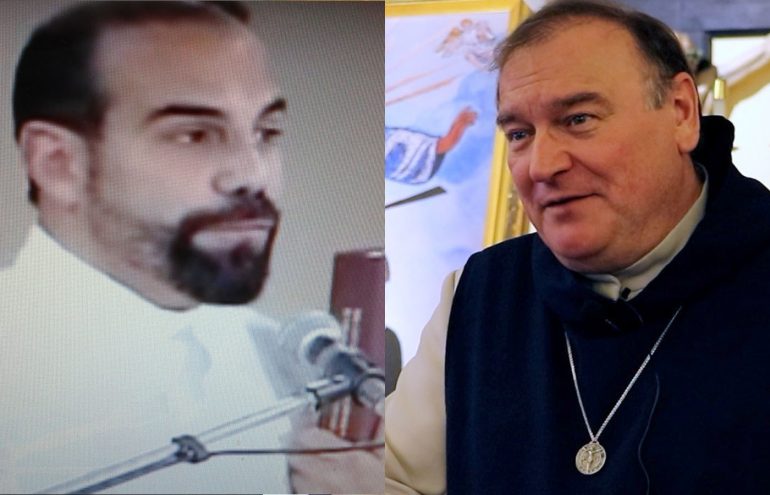

 Alicja Lenczewska
Alicja Lenczewska

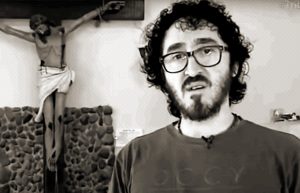
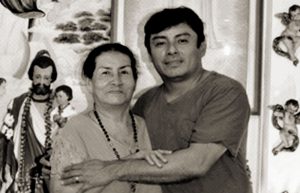
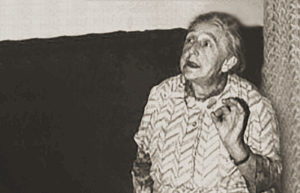 Elizabeth Kindelmann
Elizabeth Kindelmann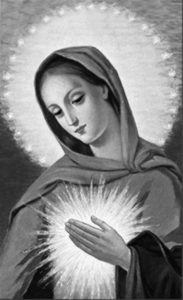 Through what became The Spiritual Diary, Jesus and Mary taught Elizabeth, and they continue to instruct the faithful in the divine art of suffering for the salvation of souls. Tasks are assigned for each day of the week, which involve prayer, fasting, and night vigils, with beautiful promises attached to them, laced with special graces for priests and the souls in purgatory. In their messages, Jesus and Mary say that The Flame of Love of the Immaculate Heart of Mary is the greatest grace given to mankind since the Incarnation. And in the not-so-distant future, her flame will engulf the entire world.
Through what became The Spiritual Diary, Jesus and Mary taught Elizabeth, and they continue to instruct the faithful in the divine art of suffering for the salvation of souls. Tasks are assigned for each day of the week, which involve prayer, fasting, and night vigils, with beautiful promises attached to them, laced with special graces for priests and the souls in purgatory. In their messages, Jesus and Mary say that The Flame of Love of the Immaculate Heart of Mary is the greatest grace given to mankind since the Incarnation. And in the not-so-distant future, her flame will engulf the entire world.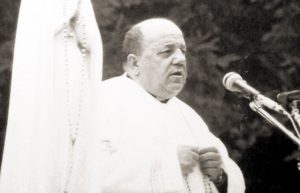 Father Stefano Gobbi
Father Stefano Gobbi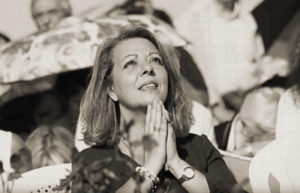 Why Gisella Cardia?
Why Gisella Cardia?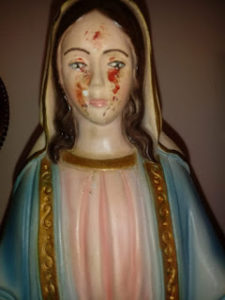 Thirdly, the messages have frequently been accompanied by visible phenomena, photographic evidence found in In Cammino con Maria, which cannot be the fruit of subjective imagination, notably the presence of the stigmata on Giselle’s body and and the appearance of crosses or religious texts in blood on Gisella’s arms. See the pictures taken from her apparition website
Thirdly, the messages have frequently been accompanied by visible phenomena, photographic evidence found in In Cammino con Maria, which cannot be the fruit of subjective imagination, notably the presence of the stigmata on Giselle’s body and and the appearance of crosses or religious texts in blood on Gisella’s arms. See the pictures taken from her apparition website 
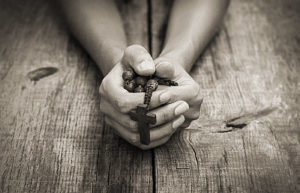 Jennifer
Jennifer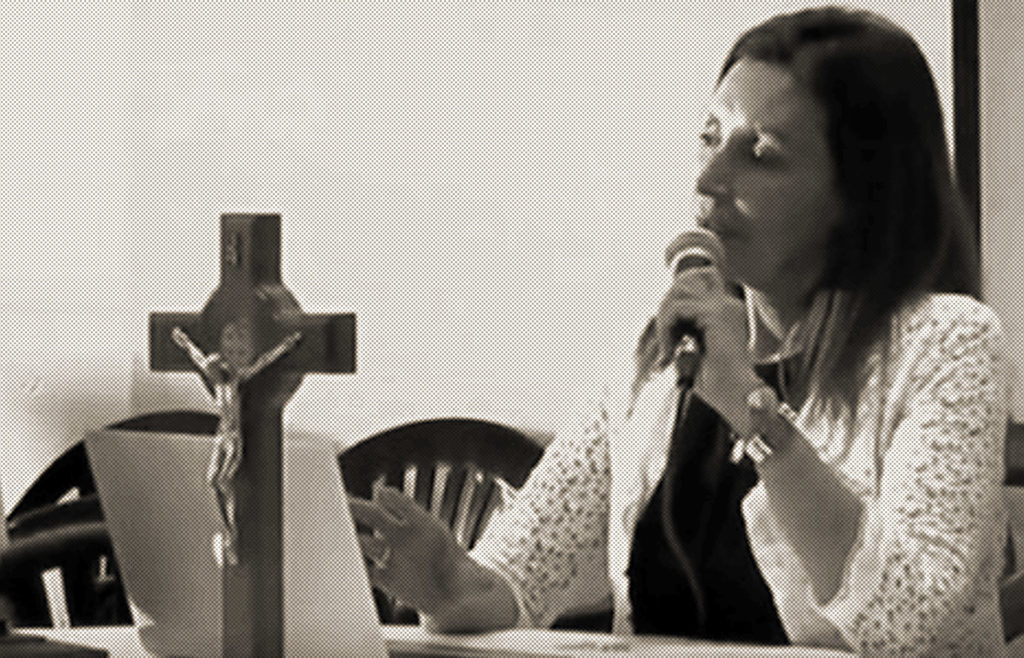
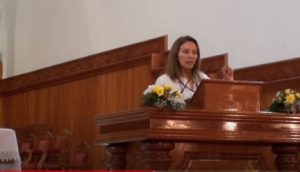
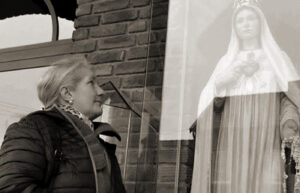 Why Manuela Strack?
Why Manuela Strack?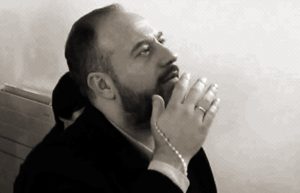
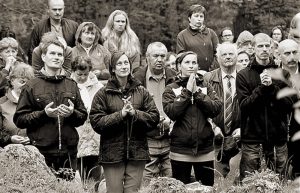
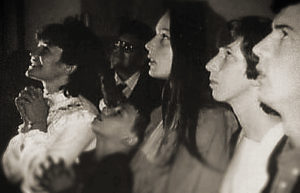 Why the Visionaries of Our Lady of Medjugorje?
Why the Visionaries of Our Lady of Medjugorje?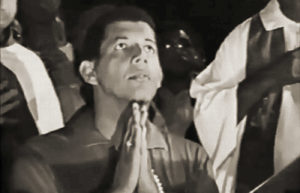 Why Pedro Regis?
Why Pedro Regis?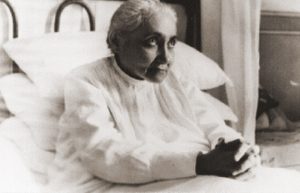 Why the Servant of God Luisa Piccarreta?
Why the Servant of God Luisa Piccarreta? of the saints. It wasn’t until she became a “Daughter of Mary” that the nightmares finally ceased at the age of eleven. In the following year, Jesus began to speak interiorly to her especially after receiving Holy Communion. When she was thirteen, He appeared to her in a vision that she witnessed from the balcony of her home. There, in the street below, she saw a crowd and armed soldiers leading three prisoners; she recognized Jesus as one of them. When He arrived beneath her balcony, He raised his head and cried out: “Soul, help Me!” Deeply moved, Luisa offered herself from that day on as a victim soul in expiation for the sins of mankind.
of the saints. It wasn’t until she became a “Daughter of Mary” that the nightmares finally ceased at the age of eleven. In the following year, Jesus began to speak interiorly to her especially after receiving Holy Communion. When she was thirteen, He appeared to her in a vision that she witnessed from the balcony of her home. There, in the street below, she saw a crowd and armed soldiers leading three prisoners; she recognized Jesus as one of them. When He arrived beneath her balcony, He raised his head and cried out: “Soul, help Me!” Deeply moved, Luisa offered herself from that day on as a victim soul in expiation for the sins of mankind. immobile, rigid-like state that appeared almost as if she were dead. It was only when a priest made the sign of the Cross over her body that Luisa regained her faculties. This remarkable mystical state persisted until her death in 1947—followed by a funeral that was no little affair. During that period in her life, she suffered no physical illness (until she succumbed to pneumonia at the end) and she never experienced bedsores, despite being confined to her little bed for sixty-four years.
immobile, rigid-like state that appeared almost as if she were dead. It was only when a priest made the sign of the Cross over her body that Luisa regained her faculties. This remarkable mystical state persisted until her death in 1947—followed by a funeral that was no little affair. During that period in her life, she suffered no physical illness (until she succumbed to pneumonia at the end) and she never experienced bedsores, despite being confined to her little bed for sixty-four years.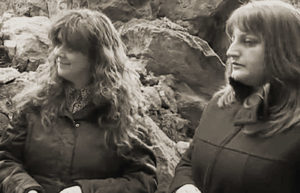 Why Simona and Angela?
Why Simona and Angela?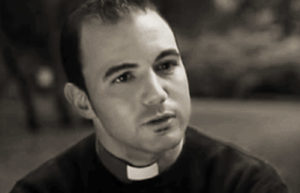
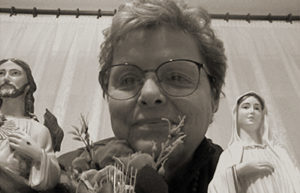 Valeria Copponi
Valeria Copponi